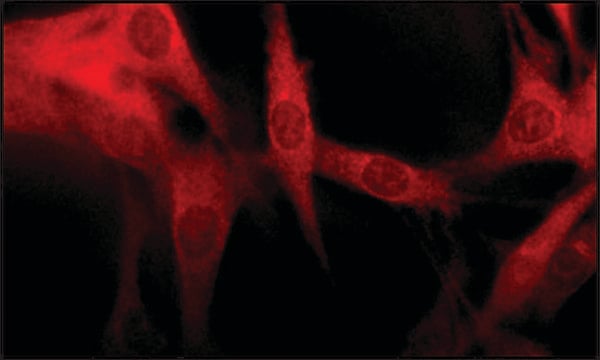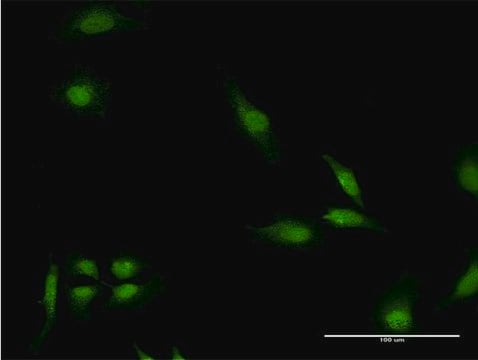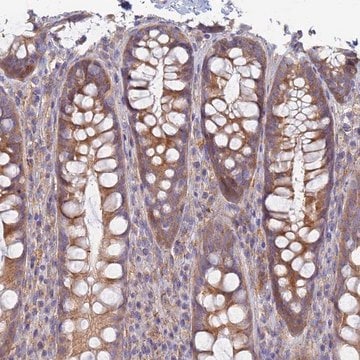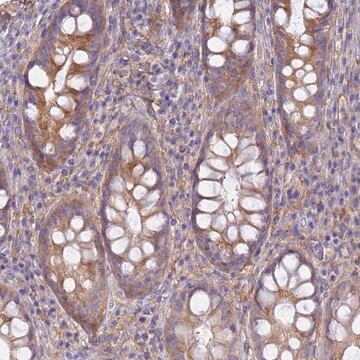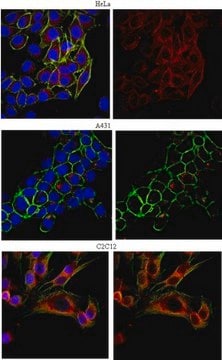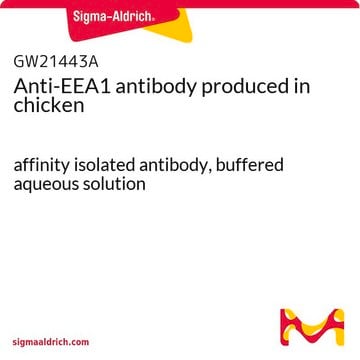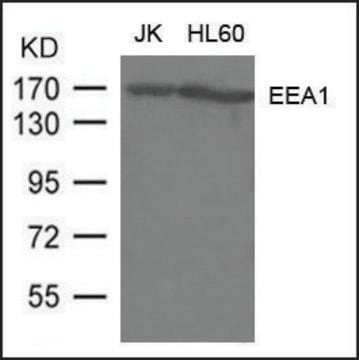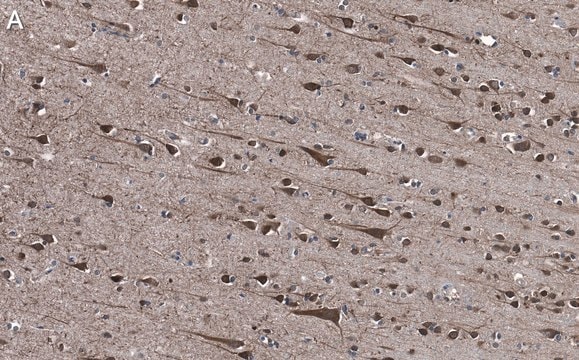E4156
Anti-Early Endosomal Antigen 1 (N-terminal) antibody produced in rabbit
~1 mg/mL, affinity isolated antibody, buffered aqueous solution
Synonym(s):
Anti-EEA1, Anti-Endosome-associated Protein p162, Anti-Zinc Finger FYVE Domain-containing Protein 2
About This Item
Recommended Products
biological source
rabbit
Quality Level
conjugate
unconjugated
antibody form
affinity isolated antibody
antibody product type
primary antibodies
clone
polyclonal
form
buffered aqueous solution
mol wt
antigen ~160 kDa
species reactivity
mouse, human, rat
concentration
~1 mg/mL
technique(s)
indirect immunofluorescence: 5-10 μg/mL using human HeLa and rat NRK cells
western blot (chemiluminescent): 0.4-0.8 μg/mL using whole extract of mouse NIH-3T3 cells
UniProt accession no.
shipped in
dry ice
storage temp.
−20°C
target post-translational modification
unmodified
Gene Information
human ... EEA1(8411)
mouse ... Eea1(216238)
rat ... Eea1(314764)
Related Categories
General description
Immunogen
Application
Biochem/physiol Actions
Physical form
Disclaimer
Not finding the right product?
Try our Product Selector Tool.
related product
Storage Class Code
10 - Combustible liquids
WGK
WGK 3
Flash Point(F)
Not applicable
Flash Point(C)
Not applicable
Personal Protective Equipment
Choose from one of the most recent versions:
Already Own This Product?
Find documentation for the products that you have recently purchased in the Document Library.
Our team of scientists has experience in all areas of research including Life Science, Material Science, Chemical Synthesis, Chromatography, Analytical and many others.
Contact Technical Service